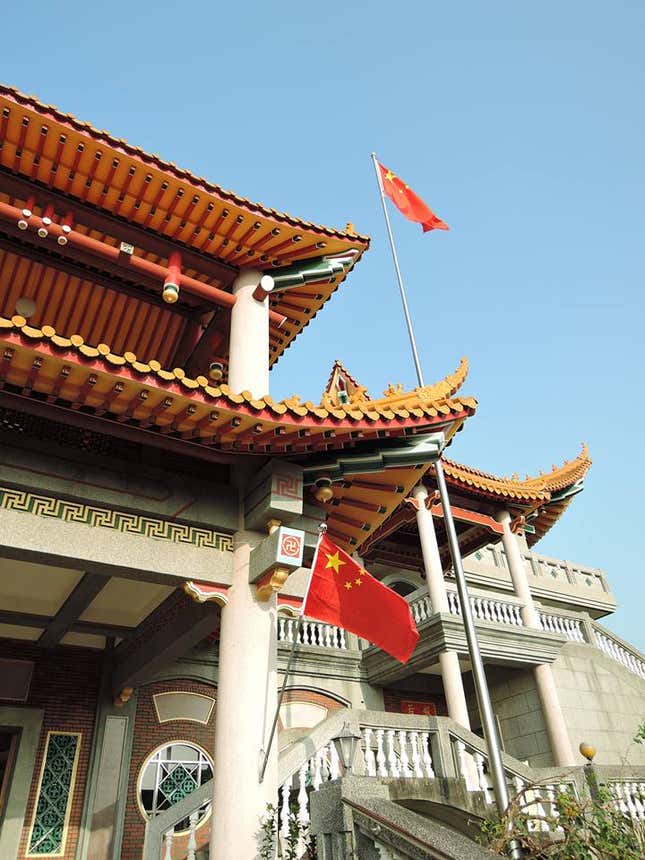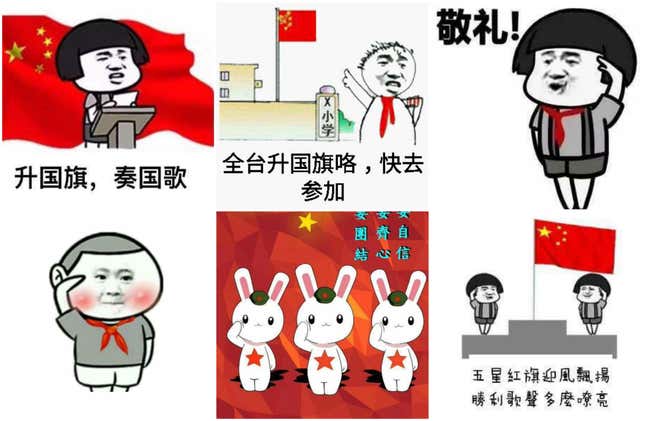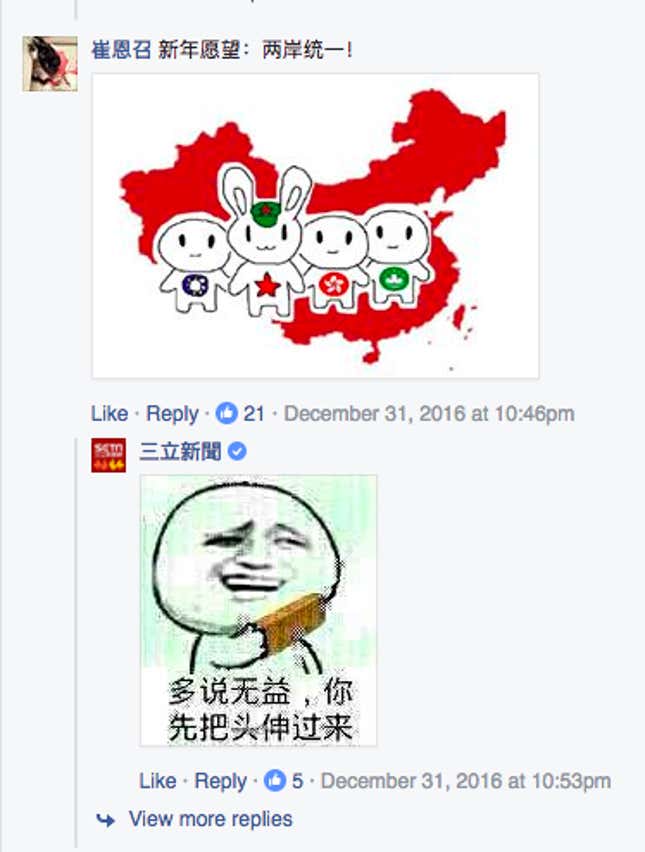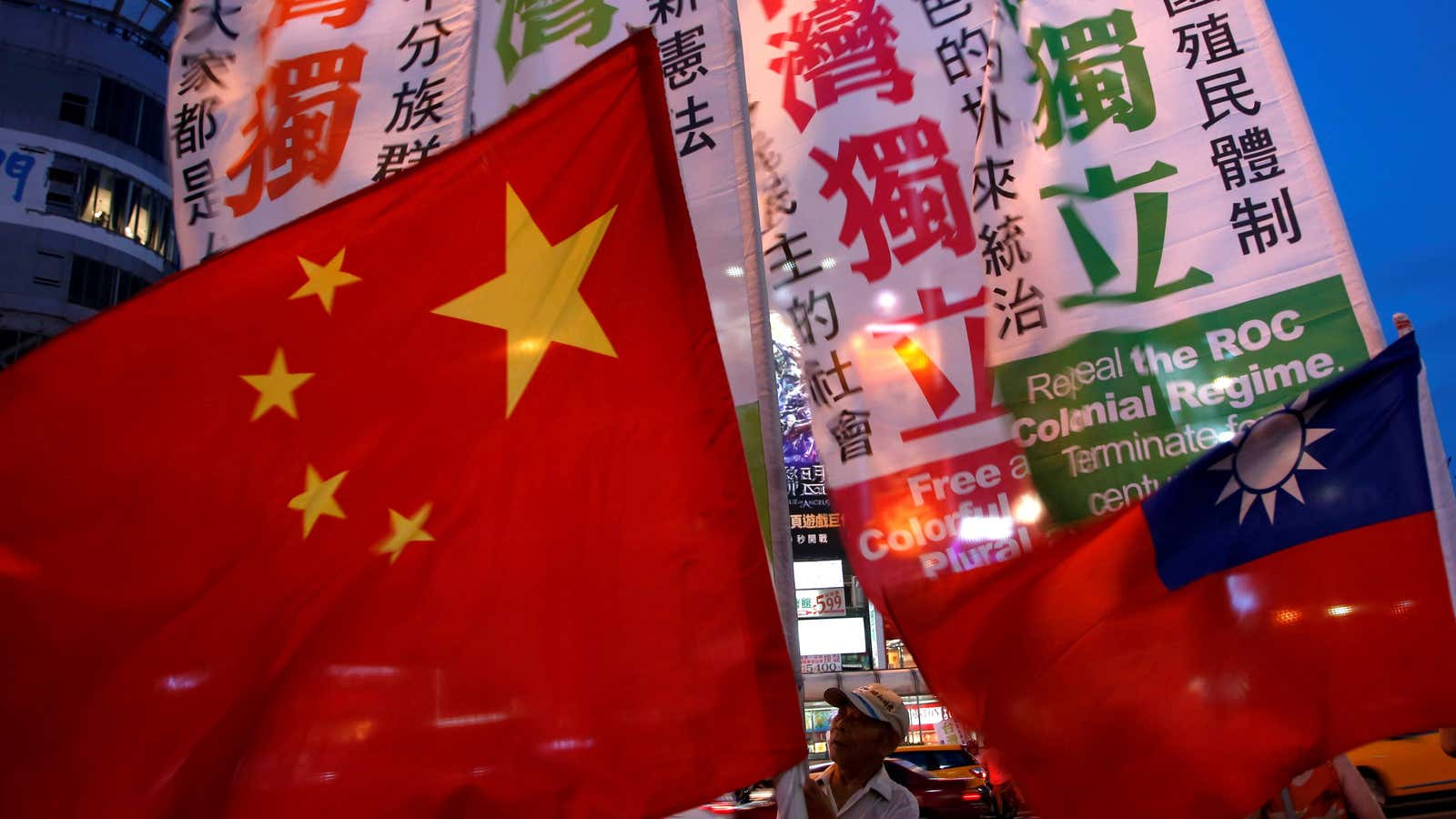On the first day of 2017, Taiwan’s president Tsai Ing-wen attended a flag-raising ceremony, a tradition observed by Taiwan’s president for many years. A few hours later, Wei Ming-jen, a Taiwanese man, held a similar ceremony at his hometown county of Changhua—using the five-star red flag that represents the People’s Republic of China.
The 60-year-old former military officer, who works in construction, raised China’s national flag and the flag of the Chinese Communist Party at a temple he bought six years ago, which he has since converted into a “socialism and nationalism outpost of the People’s Republic of China,” according to local media reports.
The Chinese Communist Party has never conquered Taiwan, but after the Nationalist party, or the Kuomintang, was defeated in China’s civil war in 1949, it retreated to Taiwan. Beijing’s government continues to view Taiwan as a renegade province that should be taken back. Taiwan, officially known as the Republic of China, has governed itself as a country and held independent elections for decades.
Around 200 people attended Wei’s event, most of them pro-Beijing groups and Chinese journalists, local media reported. Wei wrote earlier on his Facebook (link in Chinese) that his event is a protest against Taiwanese independence and the Tsai administration, whose Democractic Progressive Party (DPP) has expressed support for independence. Wei claimed to have no political or business ties in mainland China.

Wei’s move was supported by many Chinese internet users after it was reported in state media. On New Year’s Eve, a group of Chinese trolls leapt over the Great Firewall, Beijing’s elaborate censorship mechanism, to reach Facebook. They flooded the pages of Tsai, the Taiwanese army, and independence-leaning news outlets such as Apple Daily and Sanlih News with lyrics of the Chinese national anthem and other pro-China images.

The trolls are members of Di Ba, one of the largest message boards on China’s internet. About a year ago, the same group launched a trolling campaign on Facebook after Tsai won the presidential election. Around 1,500 people joined the attack this time, which was planned for 9.30pm Beijing time on Dec. 31, according to social media posts about the attack.
Pro-China and anti-Taiwan posts soon took over Tsai’s and other Facebook pages. Tsai had disabled the function that allows comments with images to be posted on her page. But Tsai’s post about her New Year speech, written earlier on the afternoon of Dec. 31, attracted over 5,000 comments dominated by Chinese internet users. They posted lyrics of Chinese political songs, and poems adapted or created to insult Taiwan. In one poem, they said that Taiwan is nothing more than a “little insect,” rather than one of the ”four little dragons,” a term used for Asia’s rapidly growing economies from the 1960s to the 90s. In another, they called Tsai an arrogrant, short-sighted “green frog” that “calls the Yamato beasts its family.” (DPP is represented by the color green, and “Yamato” refers to the the dominate ethnic group of Japan.)
Administrators at Taiwan’s Army Command Headquarters were active till 3am on New Year’s Day deleting more than 1,600 anti-Taiwan messages left on the army’s Facebook page, they said later (link in Chinese).

Some Taiwanese media chose to engage the Chinese trolls. For example, Sanlih News, whose stance leans close to the DPP, posted a cartoon depicting a guy threatening to hit a brick on his enemy’s head, in response to a Chinese internet user who wrote, “New Year resolution: reunification of the two sides of the strait!”
As Beijing takes on a more assertive global role with a growing focus on nationalism, Chinese internet users have reacted with unbridled fury to any remarks they deem to be anti-China, sometimes in an organized, collective fashion. For example, they have forced Australian swimmer Mack Horton and Taiwanese singer Chou Tzu-yu to apologize—citing the hurt feelings of the Chinese people.
